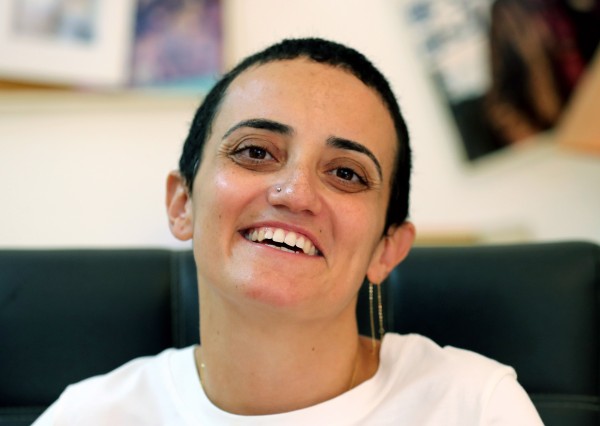Egyptian President Mohamed Morsi’s Freedom and Justice Party said, as part of its party platform, that it would uphold freedom of the press through the “elimination of government-controlled press institutions.” It also guaranteed that press laws would be amended and the Information Ministry would be abolished along with the statutory Supreme Press Council, whose powers would be transferred to the Press Syndicate.
But progress has not been quick enough for many observers, who criticise Morsi and his party, which is the political wing of the Egyptian Muslim Brotherhood. Hafez Abu Seada, president of the Egyptian Organisation for Human Rights (EOHR), told IPI that he had seen a “setback for freedom of expression after the revolution in general, and particularly after the election of the new president”.
Efforts to control the media
Morsi wasted little time putting his pieces in place. A little more than a month after his election in June, the president appointed Muslim Brotherhood member Salah Abdel-Maqsoud to the post of information minister.
In August, the Shura Council, which is dominated by members of the Muslim Brotherhood, appointed several new editors to the state-run newspapers, provoking an outcry among other members of the press who felt that the new press chiefs were too close to the Islamist group. Salah Montaser, a writer and member of the selection committee within the Shura Council, resigned shortly before the appointments were announced because he “felt that the committee was biased and was leaning towards choosing Muslim Brotherhood nominees”, according to a report in local newspaper Al Ahram Weekly. The Shura Council had in fact introduced a new nominations process by introducing new criteria and a new selections committee, according to the BBC, but observers told IPI they feared the outcome was the same: ruling party loyalists running state-owned media.
“These are the same tactics used by the old regime … the appointment of editors should be an internal decision” Abu Seada from EOHR told IPI over the phone. “Ten articles have been banned from publication, and the banning of these articles have came after the Shura Council appointed the editors (changing about 80% of the national newspaper editors).”
Hisham Kassem, former editor of the independent daily Al Masry Al Youm, told the Columbia Journalism Review that “there was nothing that could substantiate why these individuals were appointed. They [the Shura Council] were not professional in any way.”
Several private papers ran blank editorials in protest on Aug. 9.
On Sep. 6, President Morsi formally appointed members of the Supreme Press Council, on the basis of Shura Council nominations, reports said. The Supreme Press Council is the body responsible for registering newspapers, issuing the press charter, and serving as a press complaints body, according to a recent report by the Arabic Network for Human Rights Information (ANHRI). Morsi named several editors of state-run media, the head of the Journalists’ Syndicate, politicians and political party members, reports said. The appointments were criticised from several quarters because, again, the appointees were seen as being close to the Muslim Brotherhood. At least two appointees subsequently resigned. Al Ahram online reported that Nader Bakkar, of the Salafist Nour party, stepped down in favour of “other prominent figures who deserve this position more”, while Osama El Ghazaly Harb of the Democratic Front Party resigned because “the formation of the council was not optimal”.
Journalist prosecutions
Two months into his presidency, on Aug. 23, Mohamed Morsi, in his first legislative move since granting himself sweeping executive and legislative powers, decreed that journalists held under publishing crimes may no longer be detained pre-trial.
The move came in response to a criminal court decision to detain editor-in-chief of El Dostour newspaper, Islam Afifi, who was arrested in August for “insulting” the president”, and publishing of “false information”. The Aug. 11 edition of the paper was additionally confiscated by court order and Afifi was held for eight hours before the new law allowed for his release.
The fact remains that under Egyptian law, insulting the president is a crime, even though the right to freedom of the press includes the right to criticise or even offend. Rasha Abdullah, a media expert at the American University in Cairo, told the online paper The Global Post in late August that she was concerned about “the number of lawsuits that have suddenly appeared against journalists for ‘insulting the president’.”
“The laws regulating press freedom in Egypt need to change to begin with,” she said. “You cannot have the prospect of putting a journalist in prison for what he or she said. It’s unacceptable.”
Three editors-in-chief have been detained since the appointment of Morsi for “insulting the president”, reports say.
These include the chief editor of Sawt Al Ummah, Abdul Haleem Gandeel, and the chief editor of Al Fajr newspaper, Adel Hammouda. Additionally, three newspapers including Al Dostour, Al Shaab and Sawt al Ummah were confiscated in August.
Tawfiq Okasha, owner of private television station Alfareen, known for his staunch opposition against the Muslim Brotherhood, is currently being detained on charges of “incitement to murder” the president. Okasha “said on air that it was permissible to shed President Mohammed Morsi’s blood”, the Associated Press reported, noting that the commentator could face up to three years in prison.
The channel also had its broadcast license withdrawn for two months by the Egyptian General Investment Authority, which regulates the licensing of private satellite channels, just after Investment Minister Osama Salih warned private channels not to broadcast “rumours” or “false news” in order to protect the investment climate, the BBC reported.
During SCAF’s interim period, with Osama Heikal as Information Minister, Al Jazeera Live offices in Cairo were raided twice in September 2011, and the office of Al Alam, an Iranian channel, was raided in May 2012. A lack of the proper permits and licenses was reportedly cited. Local private stations ONTV and Dream TV received warnings in October last year that they were “not abiding by the terms of their licenses”, Egypt Independent reported. The English news website said at the time, “Observers deem such warnings a continuation of the policies of ousted President Hosni Mubarak’s regime in terms of its restrictions on media and freedom of expression.” In October 2011, the General Investment Authority – which is tasked with licensing private broadcasters – gave stations a written warning that they should not criticise the Supreme Council of the Armed Forces, according to the U.S. Department of State’s 2011 Human Rights Report on Egypt.
The same practice was used during Mubarak’s presidency, according to reports. In 2010, for example, ONTV and Al Faraeen received warnings over content which “causes controversy” and “rifts in society”.
Samar Samir, foreign policy editor at the independent Al Shorouk newspaper, told IPI: “[T]here are concerns [that] cannot be ignored that the brotherhood could remain dominant and hold it’s grip on the media, like the former regime.”
Hossam El Hamalaway, a prominent Egyptian activist, described in an interview with online site Jadaliyya earlier this year that the “red lines” for journalists seemed to have shifted from Mubarak’s government to the Supreme Council for the Armed Forces. The fear is that they will now shift to include the Muslim Brotherhood and President Mohamed Morsi.
“When President Morsi became Egypt’s first civil president on June 30, the official media and press were against his policy and aligned to the Supreme Council of the Armed Forces (SCAF) generals,” Samir said in an email to IPI.
Samir said that policy was rolled back to some extent after Morsi, “who belongs to the Muslim Brotherhood, issued a presidential decree transferring SCAF head, Hussein Tantawi, and the second man, Sami Anan, the Army Staff chief and who was a member of SCAF, to retirement.” According to Samir, “[O]fficial media is always going with the strongest ruler.”
But all reform takes time and there is still hope that repressive laws will be overturned. According to the local Egypt Independent newspaper, Egypt’s Minister of Parliamentary Affairs, Mohamed Mahsoub, said in late August that he had submitted a bill to the president that would repeal Article 179 of the Egyptian penal code, which in its current form allows journalists to be jailed for insulting the president. The paper quotes Mahsoub as saying, “This is an age of freedom; rulers and their subjects should be equal, and the president does not need any rules to be protected.”


